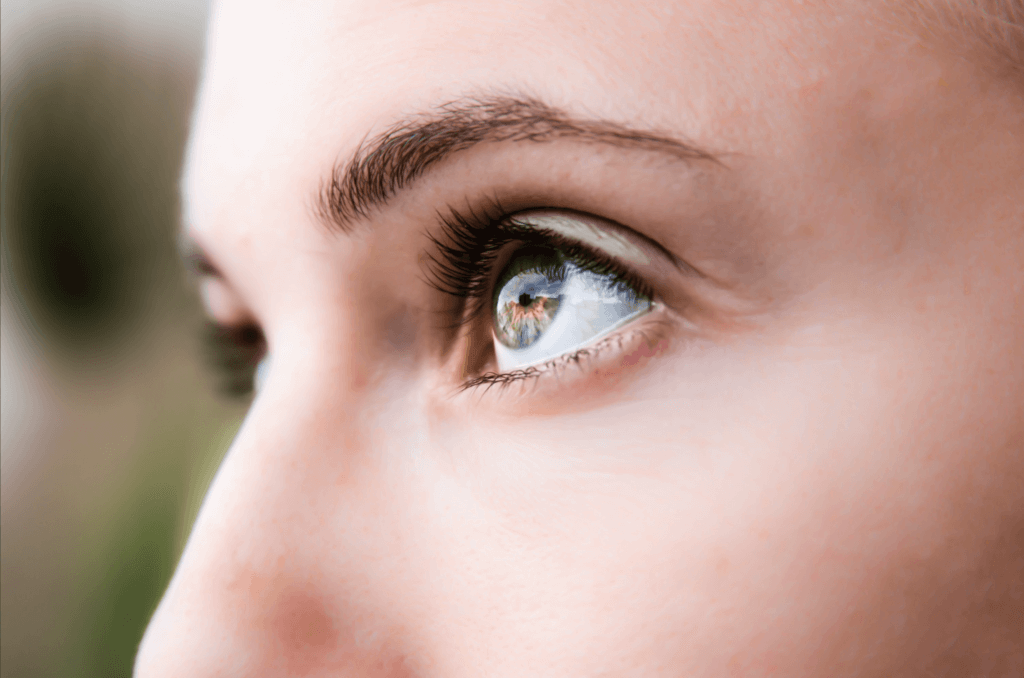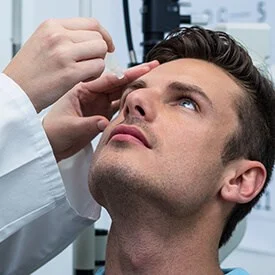External Eye Conditions in Boca Raton, FL
What are External Eye Conditions?
Our experienced and board-certified ophthalmologists regularly treat a broad range of eye conditions that range from commonplace to complex. Conditions that affect the ocular surface of the eye or the eyelids are known as external eye conditions. These conditions include conjunctivitis, pterygium, blepharitis, and chalazion. If an eye condition is affecting your daily life, it is important to seek expert care to ensure prompt healing. To have your eye condition assessed by an expert ophthalmologist, please contact our Clewner & Kelly Eye Center in Boca Raton, FL, today.
What Are the Symptoms of External Eye Conditions?
The symptoms for external eye conditions can vary based on the condition itself. However, the symptoms of these conditions can generally range from mild irritation and redness to more severe discomfort and impaired vision. Some common symptoms of external eye conditions include:
- Pain in or around the eye
- Light sensitivity
- Blurry vision or distorted vision
- Redness
- Itching or burning
- Inflammation
- Discharge from the eye
What Causes External Eye Conditions?
External eye conditions, such as conjunctivitis, pterygium, blepharitis, and chalazion, can be triggered by a variety of factors. These conditions often stem from infections caused by bacteria, viruses, or allergies. For instance, conjunctivitis can be viral or bacterial in origin or caused by allergic reactions. Pterygium is linked to prolonged exposure to ultraviolet (UV) light, dust, or wind. Blepharitis is typically caused by bacterial infections or skin conditions such as dandruff and rosacea. A chalazion results from a blocked oil gland in the eyelid. Each of these conditions reflects an underlying imbalance or irritation, whether from environmental exposure, microbial infection, or an autoimmune response, leading to discomfort and visual disturbances that necessitate medical attention for relief and recovery.
What Are Risk Factors for External Eye Conditions?
External eye conditions, including conjunctivitis, pterygium, blepharitis, and chalazion, can affect anyone, but several risk factors elevate the chances of developing these disorders. Environmental elements, such as exposure to pollutants, dust, and UV rays, play a significant role in increasing susceptibility. Personal habits, such as poor hand-eye hygiene and the excessive use of contact lenses, also contribute to the risk. Furthermore, underlying health conditions like allergies and dermatological issues can predispose individuals to these eye conditions. Understanding these risk factors is crucial for prevention and early intervention.
How Are External Eye Conditions Diagnosed?
External eye conditions are diagnosed at Clewner & Kelly Eye Center through a comprehensive eye examination performed by an ophthalmologist. This includes a detailed patient history, visual acuity tests, and a thorough examination of the eyelids, conjunctiva, and cornea using a slit lamp microscope. Diagnostic tests, such as tear film analysis or cultures, may be conducted to identify the underlying cause. Advanced imaging techniques might also be employed to get a clearer view of the eye’s structures and confirm the diagnosis.
How are External Eye Conditions Treated?
Your treatment plan will depend on the type and severity of the external eye condition affecting your eyes. If you have noticed any symptoms affecting your eyes and eyelids, you should seek an expert evaluation as soon as possible to preserve your ocular health. Some of the conditions our team routinely assesses at our Boca Raton, FL location are:
- Conjunctivitis: Commonly referred to as “pink eye,” conjunctivitis means swelling or inflammation of the conjunctiva or thin transparent tissue that covers the white part of the eye. Conjunctivitis can be caused by allergens, infection, or chemical irritants and will often be treated with different types of eye drops, depending on the cause.
- Chalazion: A chalazion is a lump that forms due to blockage and swelling of the oil glands on the eyelid. Treatment is typically minimal and involves applying warm compresses to the eyelid and gently massaging the eyelid until the chalazion is able to drain and heal. If the chalazion does not clear up within a month, it may require professional draining, which can be performed at our practice in Boca Raton, FL. Do not attempt to squeeze or pop the chalazion on your own, as this may cause additional damage.
- Pterygium: Pterygium or surfer’s eye refers to an abnormal growth of tissue on the conjunctiva that can expand to cover the cornea, which is the transparent front window of the eye. A pterygium may be able to resolve with minimal treatment, such as eye drops, but if the pterygium is affecting your vision or causing astigmatism, then it can be surgically removed.
- Blepharitis: Blepharitis refers to inflammation of the eyelids and can be caused by an infection or an underlying condition, like seborrheic dermatitis (dandruff of the scalp and eyebrows) or rosacea. Depending on the cause, treatment might include warm compresses, antibiotic eye medication, or a daily cleansing regimen.
External Eye Conditions FAQ
What causes conjunctivitis?
Conjunctivitis can be caused by an external eye infection, allergies, chemical irritates, or even sometimes contact lenses. If you are experiencing symptoms of conjunctivitis, including itchiness, redness, or any color or consistency of discharge, please contact your Boca Raton, FL ophthalmologist to be treated. Our team can identify the cause and appropriate treatment for your conjunctivitis.
How long does it take a chalazion to heal?
With treatment, a chalazion may be able to resolve within a week. If you suspect you have a chalazion, please contact your Boca Raton, FL, eye care professionals to have your eyes examined so you can be given proper treatment instructions. If your chalazion does not resolve within a week, please consult your eye care professional for more treatment options.
Will a pterygium go away on its own?
A pterygium typically will not resolve on its own, but there are minimally invasive treatment options that may help. If your pterygium is causing significant vision problems, then it can be surgically removed. Contact your Boca Raton, FL ophthalmologist to have your pterygium evaluated and to discuss your best options for pterygium treatment.
Can external eye conditions be contagious?
Yes, some external eye conditions, such as bacterial or viral conjunctivitis, are contagious and can easily spread through direct contact. If you have a contagious condition, it is crucial to practice good hygiene, avoid touching your eyes, and wash your hands frequently to prevent the spread to others. Your ophthalmologist will provide specific guidance on managing and containing any contagious eye condition.
Are external eye conditions related to underlying health issues?
Yes, certain external eye conditions can be linked to other health concerns. For example, blepharitis may be associated with skin conditions like rosacea or seborrheic dermatitis. Additionally, autoimmune disorders can contribute to eye conditions such as dry eye syndrome. If you have an underlying health issue, your eye care provider can offer tailored treatment options to address both the eye condition and its related health factors.
How can lifestyle changes help prevent external eye conditions?
Adopting specific lifestyle habits can help reduce the risk of external eye conditions. Wearing sunglasses that block UV rays, using protective eyewear in dusty or windy environments, and maintaining good hand-eye hygiene are all effective preventive measures. Limiting contact lens wear and keeping your eyelids clean can also help prevent conditions like blepharitis and conjunctivitis. Your ophthalmologist can recommend additional steps tailored to your lifestyle and eye health needs.
Special Care for Eye Conditions
To maintain your optimal eye health and protect your vision from conditions affecting the cornea and external disease, it is important to immediately seek expert care for any ailments on your eyes or eyelids. Our professional team at Clewner & Kelly Eye Center can ensure the correct diagnosis of your condition and the best treatment plan to promote timely healing. To consult with a board-certified ophthalmologist and have your eyes examined, contact our center in Boca Raton, FL.
Related Posts
How Can Common Eye Conditions Be Prevented?
*Individual results are not guaranteed and may vary from person to person. Images may contain models.



